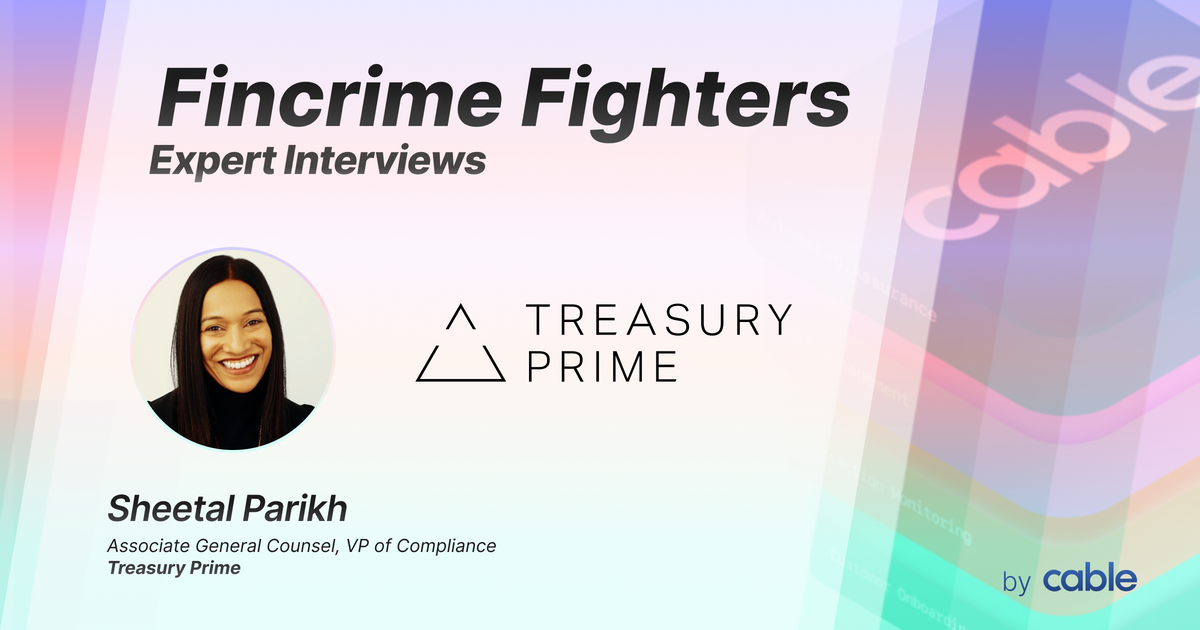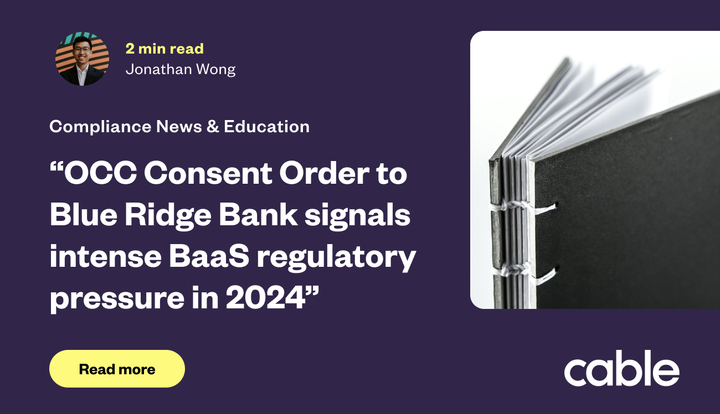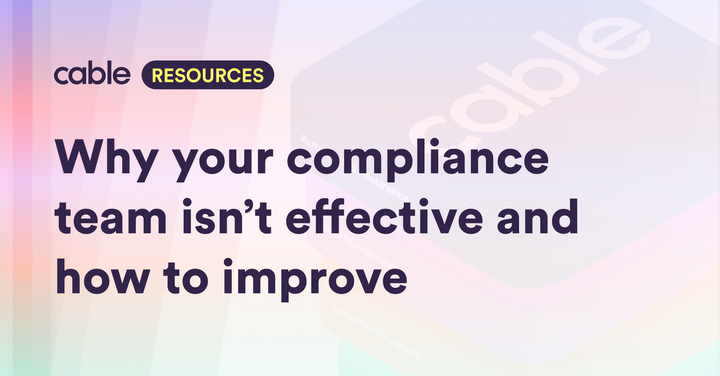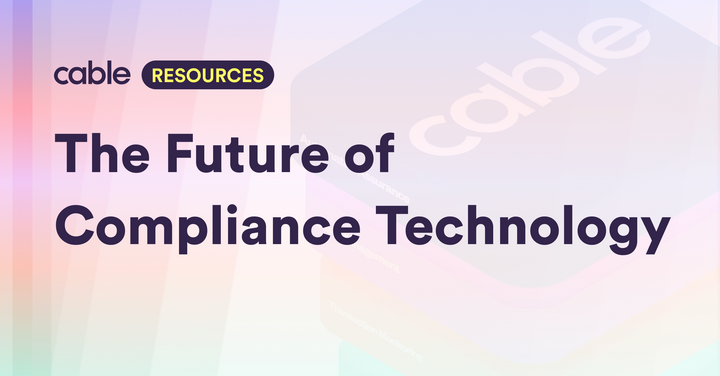Fincrime Fighters Expert Interviews: Sheetal Parikh

In this series, we interview compliance officers and other financial crime experts to find out the latest career tips, industry insights, and interesting trends you need to know. Sign up for our newsletter so you don’t miss out on upcoming interviews!
In this installment of our Fincrime Fighters Expert Interviews, we had the privilege of speaking with Sheetal Parikh, Associate General Counsel, VP of Compliance at Treasury Prime. You can find Sheetal on LinkedIn and at Treasury Prime.
Who are you and what do you do at Treasury Prime?
I’m Sheetal Parikh, and I’m Associate General Counsel, VP of Compliance at Treasury Prime. Most of the legal work I do at Treasury Prime falls into three buckets: product, regulatory compliance, and commercial.
As a product and regulatory lawyer for the Company, I work with stakeholders on reviewing the product construct of new and existing products from a legal and compliance perspective. The second bucket of work is in connection with regulatory compliance. While Treasury Prime isn’t a financial institution and isn’t regulated under FinCEN, we support and advise on regulatory compliance of banking products and services offered through our APIs. Specifically, we facilitate robust partnerships between fintechs and enterprise customers on the one hand and bank partners on the other. Treasury Prime offers its customers a compliance tool kit in order to enable and empower regulatory compliance, which includes customized collateral, vendor integrations, our own expertise, and access to a bank network. Put simply, we provide guidance to our customers by helping them think about how to effectively manage risk that may exist with a specific bank-fintech partnership. The third bucket of my work is the commercial side, ensuring our product expertise is reflected in our agreements.
What was your route to becoming Associate General Counsel, VP of Compliance?
I’ve been an attorney in the financial services industry for the entirety of my 17 year career. I started in securities and commodities litigation practice at a large Chicago law firm, working with broker-dealers and registered investment advisors, before beginning to pivot to more regulatory work.
After moving to Morgan Stanley’s legal department, I almost fully shifted away from litigation into regulatory work. I enjoyed the regulatory space much more than litigation because it provided an opportunity to counsel and advise on matters before escalation to a dispute. It was in this role that I was introduced and eventually became versed in banking laws and regulations.
When Morgan Stanley closed its Chicago office, I explored alternative financial services. As a regulatory lawyer with a money services business that offered check cashing and money transmission services through a brick and mortar platform, I learned about the nuanced regulatory landscape that exists for non-bank financial institutions and specifically learned about financial crime and money laundering concerns in these industries. That experience introduced me to unique legal and regulatory challenges facing non-traditional financial institutions and the bank partners that support these companies. Most interestingly, I learned how to apply traditional bodies of banking laws and regulations in different circumstances. That experience led me to explore the world of fintech, where I continued exploring the unique application of banking laws and regulations. Prior to joining Treasury Prime, I led the Legal and Compliance team at another BaaS company.
The common theme woven into my path highlights the need to interpret evolving legal and regulatory doctrine to match innovation and technology.
What I really enjoy about working as a lawyer in the BaaS space is that I am empowered to support innovation responsibly and have some role (however small) in helping shape an evolving regulatory doctrine.
What is your favorite thing about being Associate General Counsel, VP of Compliance?
There are two things that I enjoy most about my current role. One is thinking about how laws and regulations apply to fintechs and to their bank partners. You have to be creative and try to understand how old laws and regulations apply to a new space where technology has so far outpaced regulation and changes in laws.
The second piece is the people at Treasury Prime. It's been a fabulous experience to work with smart, innovative, creative individuals, who are also really good people. Everyone is dedicated to serving the industry and our partners and making financial services more accessible.
What is the hardest thing about being Associate General Counsel, VP of Compliance?
My favorite part about my role is also what makes it difficult. It’s human nature to want to think about things in absolute terms. In our space, there’s never one answer – it's always about risk appetite, particular facts, specific use cases and product features, and assessing a combination of these factors to make a holistic determination on risk and product parity. What I love about the space is what makes it difficult – there is no black and white.
If you had to choose the number one most important skill to do your job, what would it be and why?
Being open-minded and nimble is so important in this space, from both a product perspective and a legal and compliance perspective. You have to understand the premise that the entire space of innovation has some level of risk, because there is always an element of unknown since we are aspiring to offer services in a different way than how we have in the past.
In my view, at the heart of achieving balance between innovation and regulation is having effective controls and a risk management framework.
What is the top quality you look for in financial crime compliance vendors or partners?
We like working with providers that have a foundational understanding in both financial services and technology, and understand the intersection of the two. That’s how we see ourselves as well, and the partners we’ve had the most successful relationships with share our foundational premise as it relates to financial services and technology.
What are the biggest financial crime risks or challenges that your customers face?
From a financial crime perspective, what can be difficult for banks is figuring out how to show regulators they have a unified, comprehensive compliance program when there are bifurcated transactions executed on the bank’s core system and transactions that are executed less directly through a BaaS platform. Banks that leverage APIs from a BaaS company often rely on the technology companies for ledgering and providing transaction-related data. As a result, banks may lose direct visibility into transaction data, which can often present a level of discomfort for a federal or state regulated bank.
One of the hardest things to do is get banks comfortable with a level of segregation of responsibilities, and help fintechs understand the need for transparency.
We have heard the Comptroller of the OCC reference this precise phenomenon by talking about the de-integration of banking services and characterizing BaaS services as creating a “supply chain” of banking products and services. Because a bank leveraging a BaaS platform often relies on its fintech partner as the sole interface with end customers, banks have a legitimate fear as it relates to monitoring for financial crime and understanding who end customers are. While I believe the concerns have credence, they are certainly solvable.
The key to making these partnerships successful in the words of the regulators themselves is for the bank to have effective third party oversight and a sound understanding of risk.
What have you or your customers found most useful for addressing that challenge?
We understand the language of both banks and fintechs, so we try to help both sides understand and solve their risks. From a governance perspective, a lot of banks’ policies and procedures aren’t customized or operationalized for fintechs. We always say what’s worse than not having a policy is having a policy that does not apply to your business. So we help operationalize some of these governance concepts for customers, such as UDAAP and disclosures, and alert them to what they should be thinking about for specific products.
We’re also proud of our vendor integrations. We connect customers with the right vendors, like KYC providers and transaction monitoring tools that link with our platform, so we’re almost like a one-stop shop providing the tools for banks and fintechs to identify and mitigate risks.
There are lots of financial crime control vendors to help mitigate risks. What sets apart the control vendors that have been game changers in terms of risks mitigated or efficiencies gained?
Part of what makes our vendors so successful is the close relationship and open dialogue among Treasury Prime and our banks and fintechs. Using KYC as an example, banks review and approve the onboarding decisioning waterfall and the fintechs actually execute on it, while collaborating closely with the banks. If a vendor creates a specific waterfall for a fintech without fully understanding a bank’s risk appetite, they’ll only take the fintech’s perspective into account and may miss some relevant risks that the bank cares about. Transparency and alignment between fintechs and banks makes it easier for vendors to understand what the task is.
When you wake up, what is the first financial crime related thing you think about? What’s your 9 am thought?
Everything that we're hearing about FTX is top of mind. To me, it’s a cautionary tale. When you look at the root of what fell apart, it’s a lack of understanding and alignment between various entities. Banks and technology providers missed some connections or weren’t really looking closely enough.
What scares me are use cases that on face value may seem legitimate, but sometimes you don’t know what you don’t know and in our space, transactions and technology move quickly. It can be challenging sometimes to have full insight into how a specific product works or how a partner is leveraging the product until consumers start using it.
From a consumer protection perspective, we deploy things quickly in this space, but it’s important to have checks and controls that provide real-time feedback on how certain transactions are working or how consumers are really using products.
Also, I think about how we navigate competing interests. There is so much synergy between banks, fintechs, and technology providers, but the question of how it all lines up is delicate. So my 9 am thought is how to balance competing interests to enable innovation responsibly.
A lot of manual work still exists in the financial crime compliance space. If you could magic away a piece of that work, what would you do and why?
So much manual work results from certain customer acquisition strategies. Operating in an initial growth phase, fintechs or companies are reluctant to turn customers away from its respective platform, which inevitably results in tedious manual work, whether it's transaction monitoring or KYC, because customer acquisition criteria are not more defined. Being more precise about decisions to decline transactions or users, while balancing accessibility considerations, can cut down manual reviews. A lot of organizations struggle to make these decisions, but being more deliberate about your risk appetite and sticking with it can ultimately precipitate automation.



